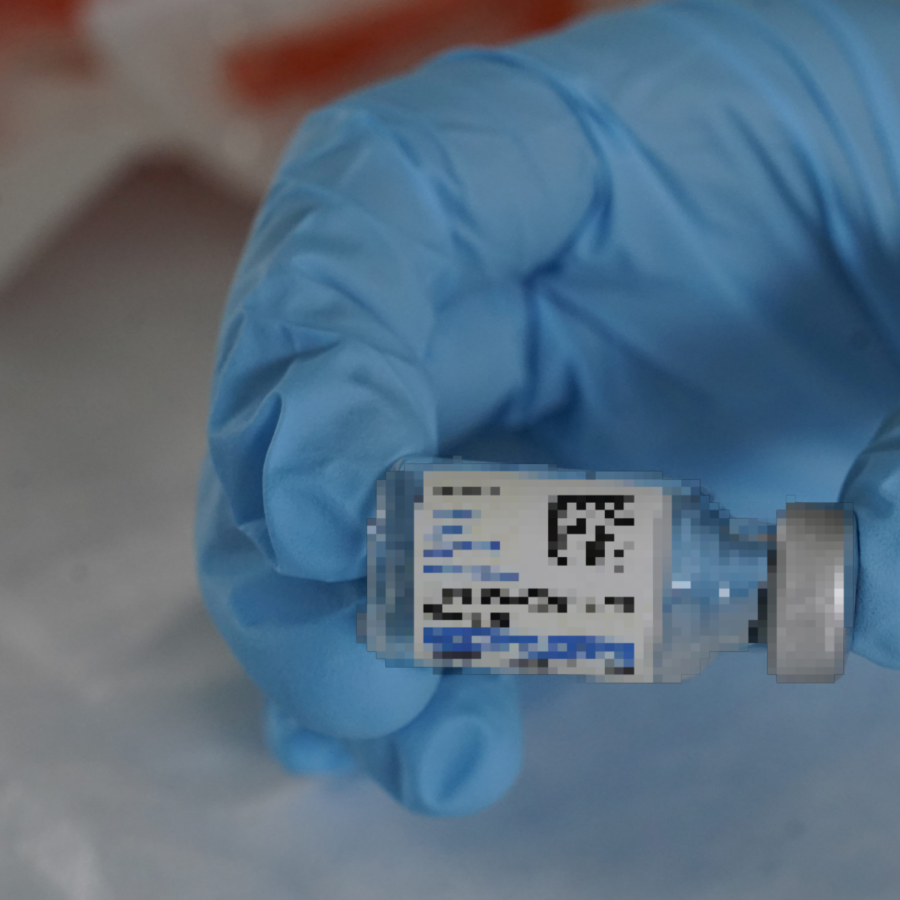The danger behind delegitimizing the Johnson & Johnson vaccine
“I’m 465 times more likely to obtain a blood clot from my birth control than I am from my COVID-19 vaccine, though both scenarios are incredibly doubtful.”
April 23, 2021
“Oh you got the fake vaccine?
I was too confused to even muster a response to the above Snapchat message that I received a couple weeks ago. The message was a reply to a photo I had posted of my vaccination card––something many of us have been doing to show our support for science and hope for a return to normalcy sometime in the near future. I received the Johnson & Johnson vaccine, but unlike those who received Pfizer or Moderna immunizations, I’ve recently found myself stigmatized by social media, targeted in memes, and the butt of several jokes.
First off, what are the differences (and similarities) between the three vaccines?
- Pfizer: The Pfizer-BioNTech vaccine was the first to be released and distributed in the United States. Administered in a series of two doses (the second given 21 days after the first), it works by using messenger RNA technology to develop antibodies that can help fight off the virus.
- Moderna: The Moderna vaccine uses similar genetic instruction to the Pfizer vaccine to prevent symptomatic COVID-19 symptoms. Moderna is also administered through two doses, however the second cannot be given until 28 days have passed since the first dose.
- Johnson & Johnson: The final of the three vaccines to be developed, Johnson & Johnson uses an adenovirus to “deliver instructions on how to defeat the coronavirus.” This vaccine only requires a single dose and can be kept at refrigerator temperatures, making it the most accessible and distributable vaccine of the three.
Despite the differences in scientific technology, temperature maintenance, and dosage frequency––Pfizer, Moderna, and Johnson & Johnson are all successful in preventing severe COVID-19 symptoms. It’s the efficacy rates between the three vaccines that cause major confusion and misconception in regard to the Johnson & Johnson vaccine amongst the general public.
What is efficacy? Vaccine efficacy refers to “a percentage reduction in disease incidence in a vaccinated group compared to an unvaccinated group under optimal conditions.” While the efficacy rates for Pfizer and Moderna are around 95% Johnson & Johnson’s is often reported as 65% effective in clinical trials. But it’s not all about efficacy. The truly important statistic to take note of, is how successful a vaccine is at preventing serious disease (the kind that sends you to the hospital). Studies show that that rate lingers around a much higher, 85% for Johnson & Johnson, making all three vaccine types quite similar in their abilities to keep you from contracting a potentially fatal case of COVID-19.
The next Johnson & Johnson myth to debunk is blood clotting. Surely we all read the recent headlines putting a halt on Johnson & Johnson, citing a link between the single-dose vaccine and rare blood disorders known as cerebral venous sinus thrombosis (CVST). The key word here is rare. In fact, rates of blood clotting are so unlikely that it only affected six people of the over 7 million who received the vaccine. For reference, (if the Johnson & Johnson vaccine is even indeed linked to blood clotting) that means there’s a 0.00008% chance of it happening. In comparison, oral contraception has between a 0.03% and 0.05% chance of causing blood clots in those who take it daily.
Ultimately that means, on average, I’m 465 times more likely to obtain a blood clot from my birth control than I am from my COVID-19 vaccine, though both scenarios are incredibly doubtful.
Regardless of all that evidence pointing towards the fact that any of the three vaccination options are beneficial to society, Tik Tok, Instagram, and Twitter have had a field day with false information on Johnson & Johnson’s effectiveness.
Watch on TikTok
Me last week when I thought getting the Johnson and Johnson vaccine was a flex pic.twitter.com/87u2sU0AYI
— Al (@allie4u_) April 13, 2021
Humorously intended or not, using false information as a platform to broadcast false information about the Johnson & Johnson vaccine is harmful. Not only does it disrespect, isolate, and spark anxiety in those who got the vaccine, but it could also hinder citizens from seeking preventative measures entirely––especially if Johnson & Johnson is their only local option.
Let’s stop fear mongering for laughs, start praising vaccine recipients, and continue to encourage others to pursue immunization.








